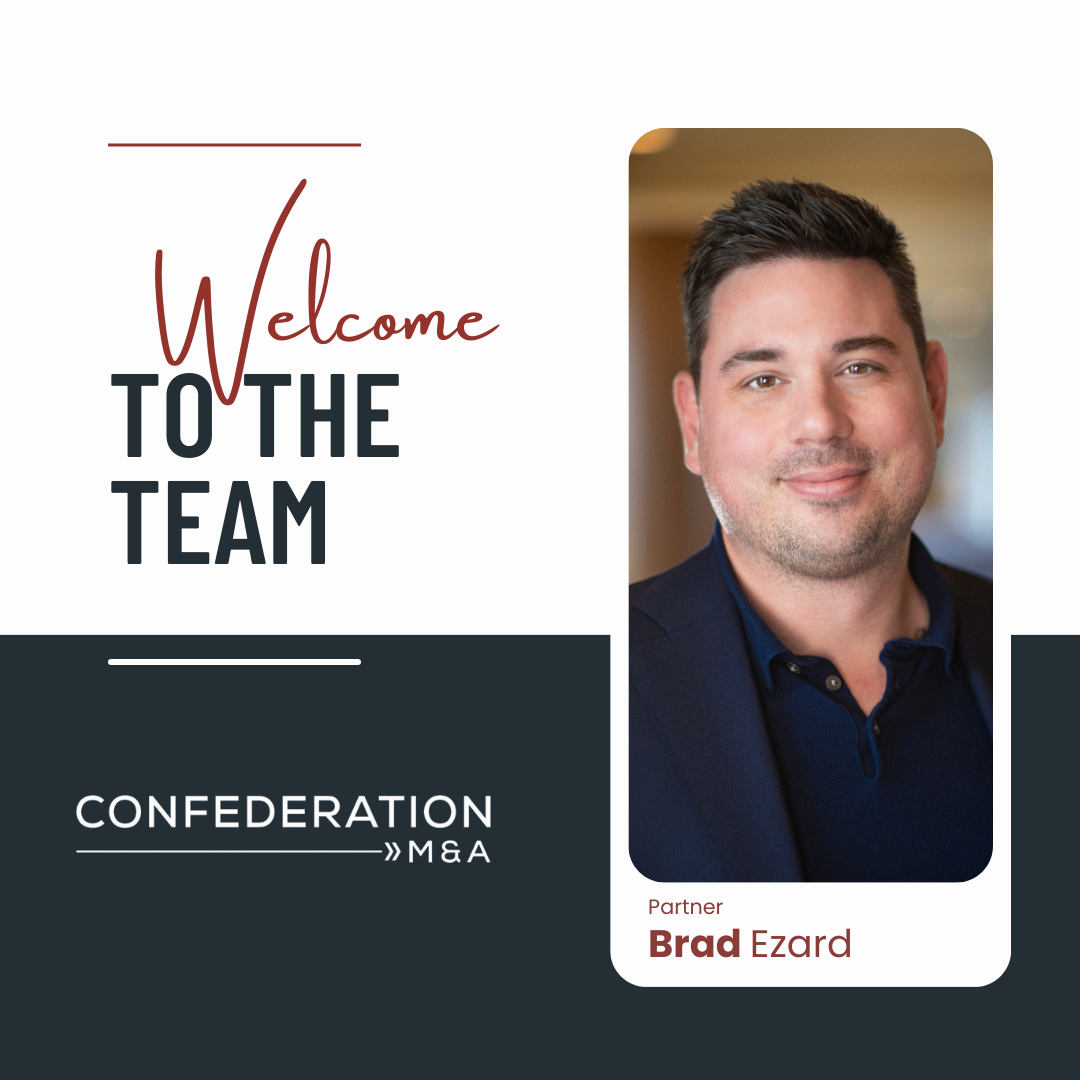In the Spotlight: An Interview with Robert Smith, Former General Partner of Windsor Court
July 13, 2022 · 8 mins
In the winter of 2020, Windsor Court Retirement Residence, an 89-unit retirement residence in Fredericton, New Brunswick, was purchased by Adam and Marsha Doiron, Prince Edward Island entrepreneurs, and Marcel Ogon, General Manager of Windsor Court, and his wife Denise.
Confederation M&A was engaged as the sell-side advisor, representing Robert Smith (General Partner) and the rest of the Limited Partnership group in transitioning the retirement residence to the new ownership group.
Our partner, Bob Brown, had the opportunity to have a chat with Robert on his ownership of the retirement residence and interesting details leading up to the sale/sale process.
Bob: You, along with your partners, purchased Windsor Court in 1994 as a condominium building and then converted the property to a retirement home with a range of health care services in 1999. Take us through the process of converting the condo building into what Windsor Court Retirement Residence is today.
Robert: The original concept of the facility was purely that of a Retirement Residence, not a health care facility. Health care wasn’t offered as a feature or service, and offering such service in the future by the developer wasn’t anticipated. Such properties were becoming popular in Ontario in the mid-to-late 1980s as an option for retiring professionals who wanted a carefree lifestyle, in high-quality accommodation, free of the chores of independent living.
There were two target markets in the original concept: first, the retired or semi-retired individual or couple willing to pay a premium rent over ordinary apartment or condo living in exchange for a catered lifestyle that included the services one would expect from an all-inclusive resort. The second market was an investor group willing to purchase condominium units that offered up-front tax savings, cash flow from rents and ultimately capital gain from a potential sale of the property in years to come.
Unfortunately, the condominium project was a failure. Although the initial market research was positive, especially given the fact that Fredericton is a government and university town with relatively high incomes, initial rental uptake was extremely low, and the facility wasn’t able to meet its financing obligations from inception to 1994. Wishing to safeguard their investment, a group of the original condominium investors worked with the mortgagees to restructure the project into a Limited Partnership, and essentially take over ownership from the original developer. Ultimately, it was the provision of qualified and experienced management that led to the later success of the business as a going concern.
Bob: After successfully running Windsor Court for 20+ years, what led you to the decision to sell the business?
Robert: The primary reason was the demographics of the Limited Partners. In 2019 the average age of a limited partner was 69. Several partners were in the early to mid-90s, and a growing number were octogenarians. Furthermore, a number had passed away over the years, leaving their units to descendants who were not necessarily interested in maintaining the investment. From an estate planning perspective, divesting of the limited partnership made sense to the majority.
Bob: As mentioned, Windsor Court was owned by a group of Limited Partners. Can you explain how the process of selling went when dealing with multiple shareholders?
Robert: In a Limited Partnership, the General Partner (GP) is guided by a legal agreement that outlines duties, responsibilities and authorities. In terms of overall management, the GP has almost independent authority to make the vast majority of decisions within the scope of the written agreement. This is because the GP has unlimited liability for the operation, whereas Limited Partners enjoy “limited liability”. In order to maintain this limited liability, partners must abstain from being involved in management decisions affecting the company. The only input the partners have is through an informal Advisory Committee that can only make recommendations to the GP. After conducting a written survey, the percentage of those wishing to sell exceeded 95%. Furthermore, the GP had the authority to accept or reject any offers to purchase in the best interests of the majority. Otherwise, obtaining consent at every stage of the selling process would have become cumbersome and impractical.
Bob: What led you to a conversation with Confederation M&A?
Robert: Once the decision to sell the partnership’s assets was made, management was left with two possibilities: sell privately or engage the services of a company specializing in such transactions. The idea of selling privately wasn’t a realistic option: inexperience in such transactions, the lack of a network of prospective purchasers, and the relatively complex business structure of the partnership compared to a corporation. When I informed our attorney, Robert Peters (Peters Rouse, Fredericton) that the decision to sell had been made, and I would be seeking an agent, he referred me to Confederation M&A as he had experience with you and your company from previous transactions.
Bob: Marcel Ogon was one of those shareholders and also the General Manager of Windsor Court. Through the transition, Marcel and Denise have remained owners (along with Adam and Marsha Doiron) and Marcel is still the General Manager of the business. Explain the importance of Marcel to Windsor Court and how him staying on as General Manager while also retaining some ownership of the business came to be.
Robert: I assumed my role as Managing General Partner in 2010, following a 40-year career in senior management with the Government of Canada, including 22 years as a senior officer with the Canadian Armed Forces, and 18 years in economic development as a civilian public servant. My education and experience were in administrative and financial management. Although at first glance this background might seem to be an unlikely fit with Windsor Court, I had been involved with the facility from its earliest days as one of the original investors in the condominium project in 1988, and a member of the facility’s Advisory Committee for over 20 years. I was certainly very familiar with the operation, far more so than the average limited partner, so I was able to hit the ground running so to speak. I also had a strong relationship with many of the limited partners who I had worked with in previous careers (many ex-military).
I believe it is my military background that led me to see the qualities and potential for Marcel to assume a greater role with the organization and eventually, after a period of working closely with me, replace me in the role of CEO. From the outset of assuming my duties as Limited Partner, my focus was on the success of the facility in the short term, while also developing a succession plan as my desire was to retire within the coming few years (which actually turned out to be 9 years, far more than I anticipated!). Marcel, in addition to being highly qualified in the service industry (qualified Master Chef) also has a military background, which obviously made our connection very strong from the outset. My opinion of Marcel’s professionalism and the qualities he brings to Windsor Court cannot be overstated. As I have often said about the retirement home industry: “Anyone can build a retirement residence – but not everyone can manage a retirement residence”. Marcel exhibited the necessary skills and motivation for success.
Bob: Explain the importance of Marcel remaining as part of the ownership group.
Robert: It is renowned investor, Warren Buffett, who is attributed with developing the term “Skin in the Game”. I believe this metaphor applies perfectly to the ownership position of Marcel. His experience and leadership qualities are enhanced by the fact that he has a very strong motivation for the business to thrive and prosper. I believe it is an ideal combination.
Bob: After successfully selling Windsor Court, what advice would you have for any future sellers?
Robert: Focus on maintaining the best possible reputation for the business. The health care field relies heavily on customer satisfaction, both those receiving the service (the seniors) and the immediate family – this is even more critical than in other service industries. Satisfying both is essential. And, the best way to accomplish this is by having a highly-trained, compassionate workforce. Windsor Court was attractive to prospective purchasers because of its reputation as well as the potential growth in the industry (aging population). Regular investments need to be made in infrastructure (maintaining an aging property) and maintaining the standards of the workforce.
Bob: How’s retirement?
Robert: Although I’ve received several offers of employment/contract work since 2020, I’ve resisted and decided that after 46 years of various roles, including 22 years of military service (10 years in the field, including international peacekeeping) it was time for a change of pace. Although golf has been described as a “Good walk, spoiled”, I have managed to play 3-4 times per week for the past several years, although that amount of activity hasn’t positively affected the scores!
Bob: Any final thoughts for anyone looking to sell their business?
Robert: Engage the services of an agent experienced in the sales process and who possesses a wide network of qualified prospects.





